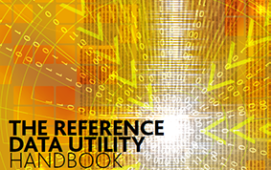
BlackRock has bought the world’s largest independent infrastructure asset management company, underlining growing investor thirst for data on real assets.
Global Infrastructure Partners (GIP) was bought for US$12.5 billion by BlackRock, the world’s biggest asset manager. GIP manages investments in infrastructure projects that include contributors to net-zero efforts, such as water and waste amenities, energy plants and transportation facilities. BlackRock cited the major growth opportunities in decarbonisation as a key driver for its acquisition.
It also said that surging demand for property and infrastructure, especially broadband, mobile phone, shipping and supply-chain real estate made the deal attractive.
“The need to reconfigure the global energy system to decarbonise the economy is one driving mega-force that presents considerable long-term private markets investment opportunities in infrastructure development,” BlackRock wrote in its 2024 Private Markets Outlook at the end of last year.
New Services
The deal comes amid a flurry of activity among real asset data providers to serve investors as they capitalise on transition opportunities in the sector and assess their holdings’ risks to the ravages of climate change. With real assets accounting for about 40 per cent of global emissions and huge infrastructure projects such as wind and solar farms being key parts of the global net-zero strategy, the sector is a significant focus of among sustainability-focused institutions.
Data companies Deepki, Measurabl and Hines as well as ESG consultancy Evora have all announced either new offerings or plans to expand in recent months. Deepki last year acquired French carbon accountancy platform Nooco and California-based Measurabl is in the process of extending its real estate ESG platform globally after receiving a $93 million cash injection. That comes after Measurabl signed a deal to provide asset-level ESG data collection and tracking services to users of Nasdaq’s OneReport.
While real assets are generally managed privately, institutions are among the largest investors in such markets, accounting for between a quarter and a third of all money put into the sector. The assets are particularly popular among investors with longer returns horizons. Investment manager Downing said in a report that real estate development credits were a particularly “attractive sector” to pension funds.
ESG Imperative
Real assets make up a large plank in the ESG plans of such funds, which last year increased their commitments to sustainable investment. Research by asset manager Aviva Investors last year found that 93 per cent of global institutional investors said they consider ESG and sustainability in their real estate investment decisions. In the UK, the proportion of UK pension schemes that had made net-zero commitments by last year rose 11 percentage points over the previous 18 months to 68 per cent, according to the Pensions and Lifetime Savings Association (PLSA).
Nevertheless, longer-duration assets carry potentially higher risks as accelerating climate change threatens to increase the potential physical hazards to which they may become vulnerable. The risks they carry are multiplied in areas of known vulnerability, such as river flood plains or within wildfire zones. But the yet unknown consequences of climate change make all areas potentially hazardous.
Daragh Tracey, director of product management, regulatory compliance at Fenergo illustrated the point at a recent A-Team Group webinar with reference to construction projects in New Orleans, and Cork in Ireland. Parts of those cities are “going to be underwater” in 50 years, Tracey said.
That poses a threat to directly generated revenue and to the reputation of stakeholders, he said.
Stepping In
To counter these risks, investors are clamouring for better data to inform their decisions, and for assets that already have good data. Pension funds in Europe, for instance, have been looking for RCI assets with strong ESG metrics. A 2022 survey of 250 such funds focused on commercial real estate by London-based Deepki found that a third were in the process of selling or refurbishing assets that had poor ESG ratings.
To encourage data disclosures, the Carbon Risk Real Estate Monitor (CRREM) was created to help guide investors and asset managers in improving the carbon performance of their holdings.
Harnessing that framework, is the iSTOXX APG Real Estate CRREM-aligned Responsible Investment Index Data, which was created to enable investors to monitor their investments. The index, launched in September by pension investment giant APG Asset Management, uses data provided by Switzerland-based RepRisk.
Real assets are a hedge against high inflation and as the cost of living worldwide has begun to trend upwards again, observers say it is likely that sustainability-focused institutions will continue to look at this asset class – and it’s likely that data will not be far behind them.
Subscribe to our newsletter




